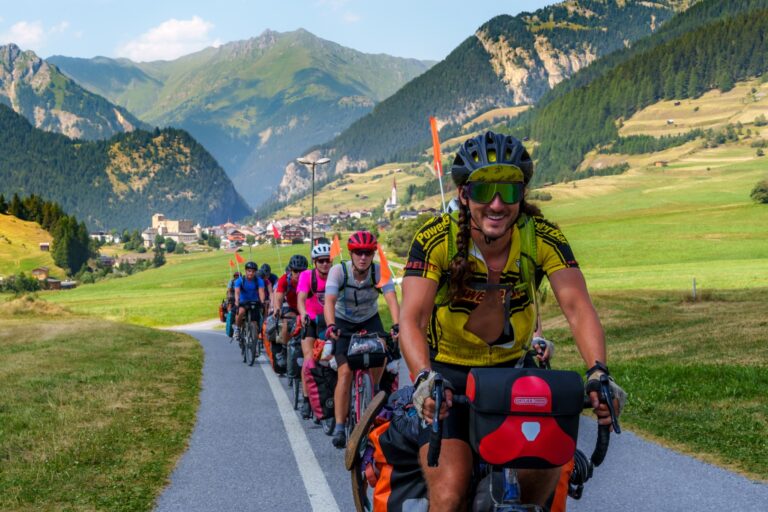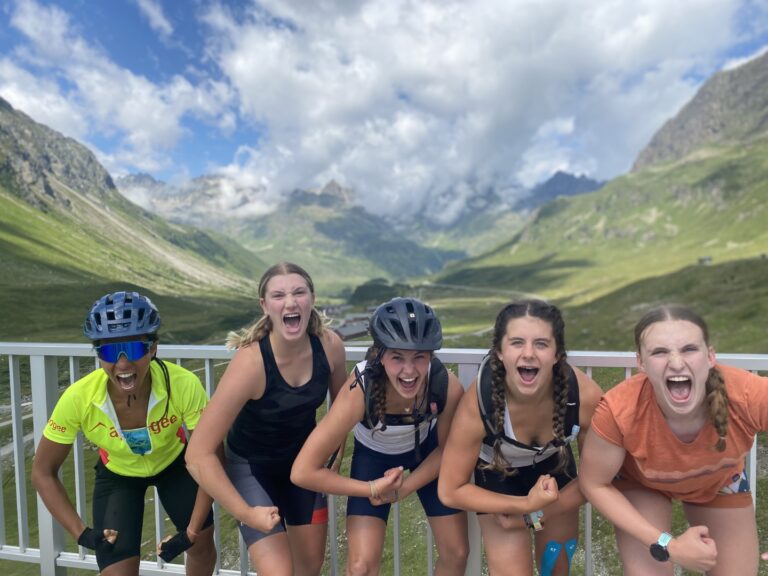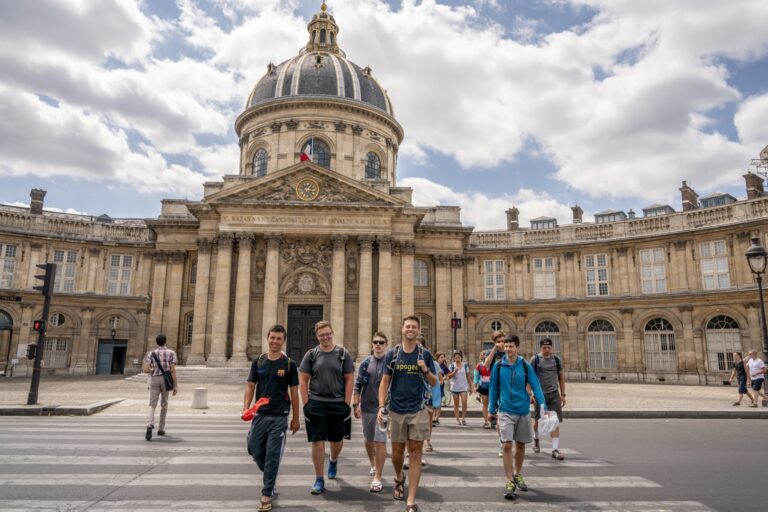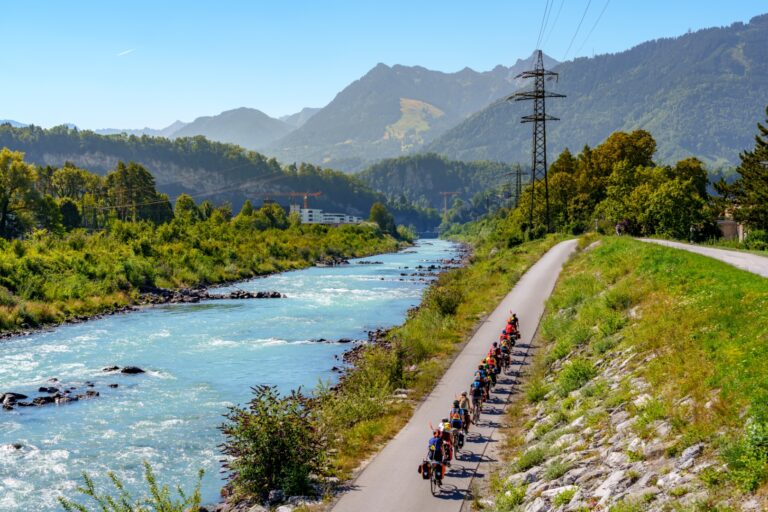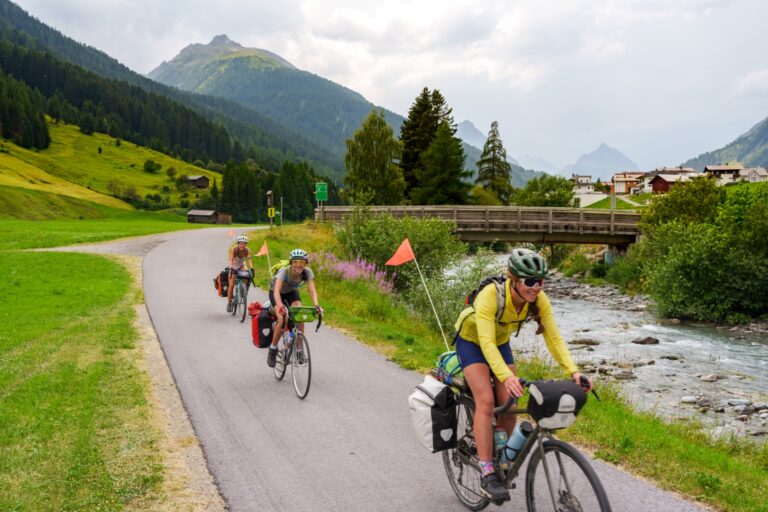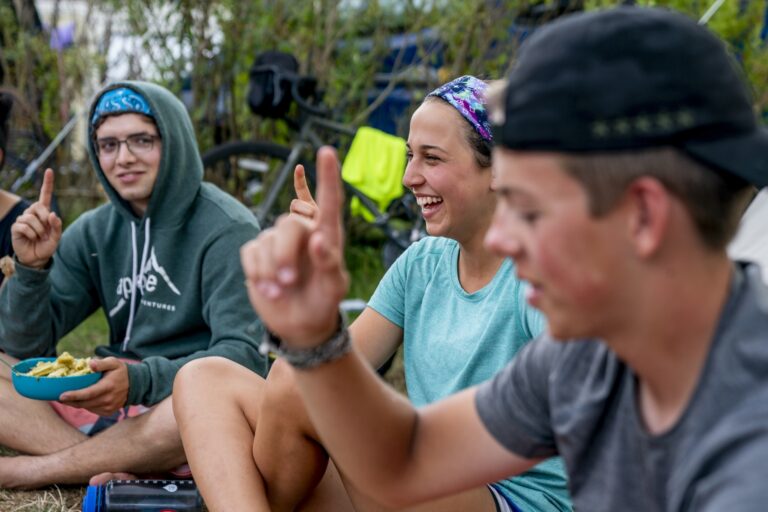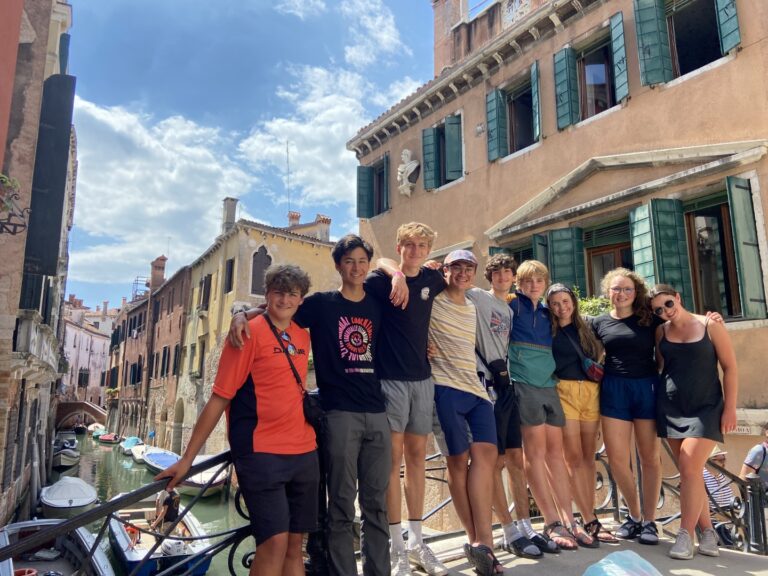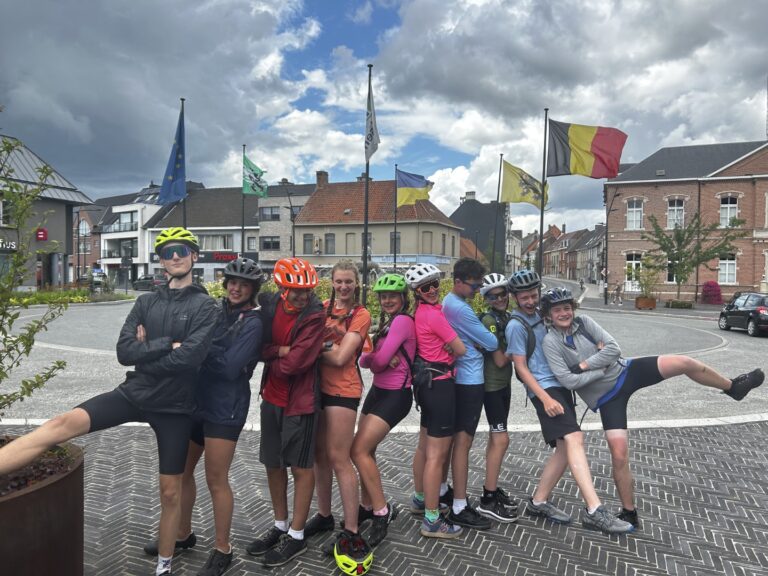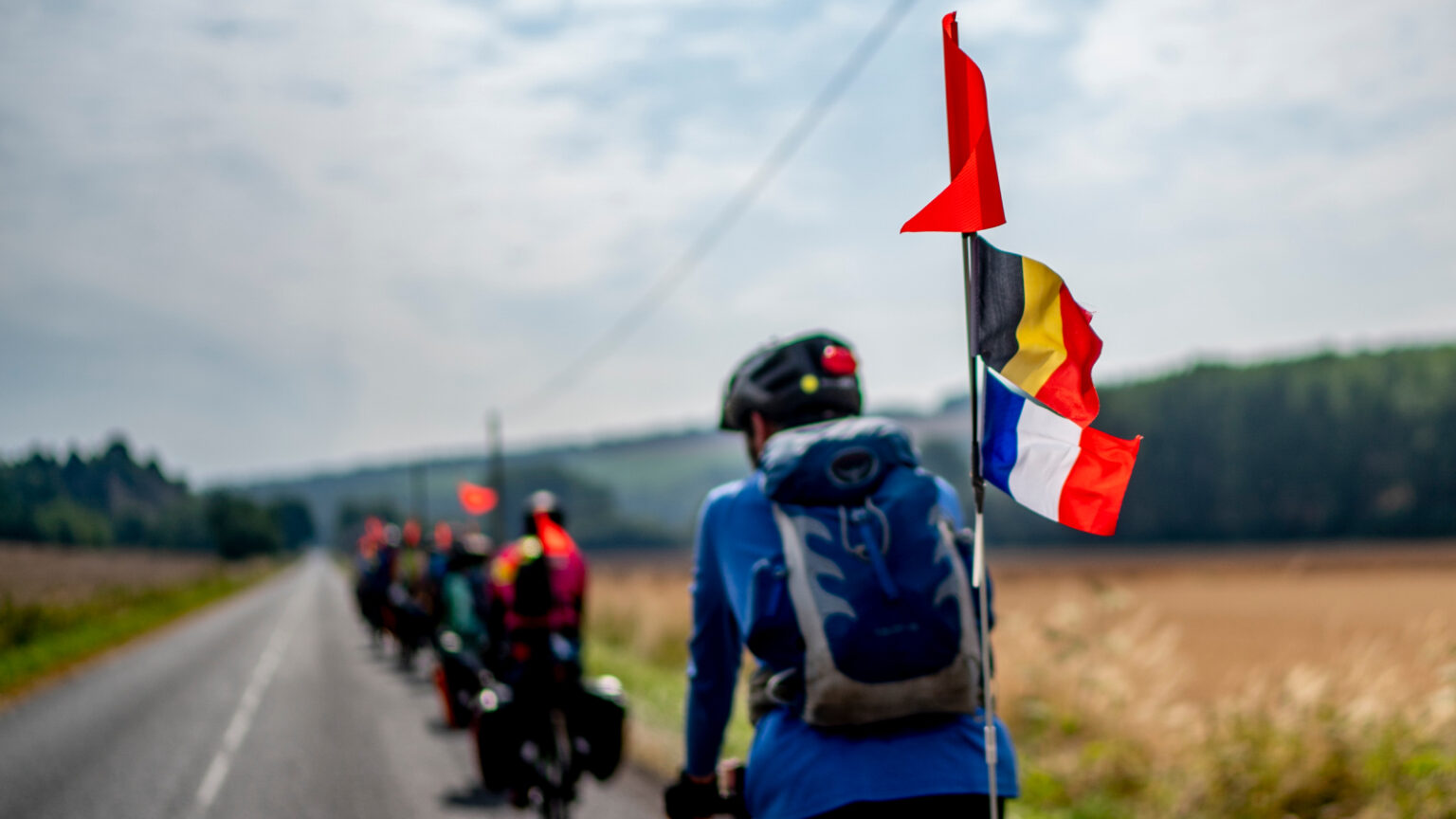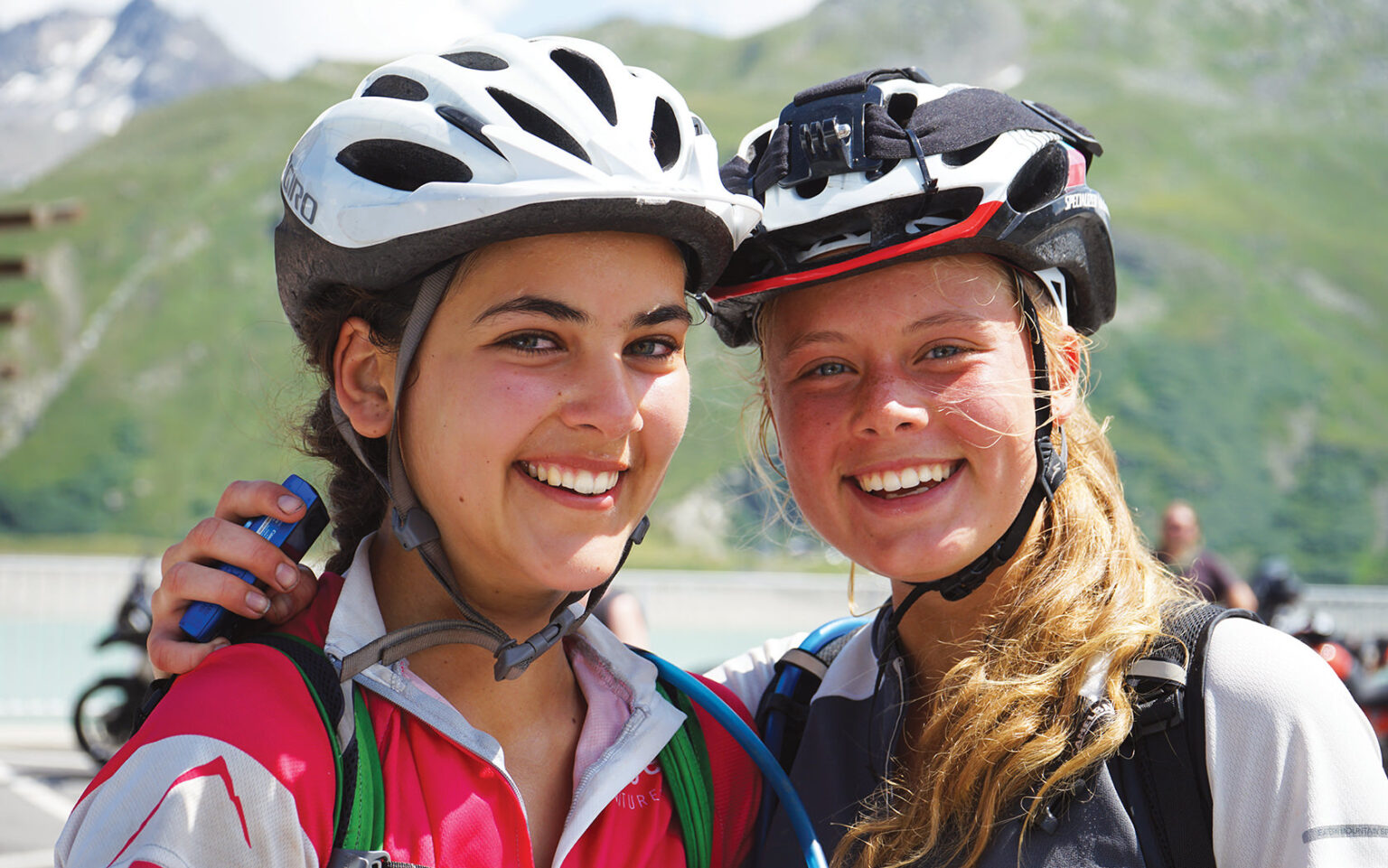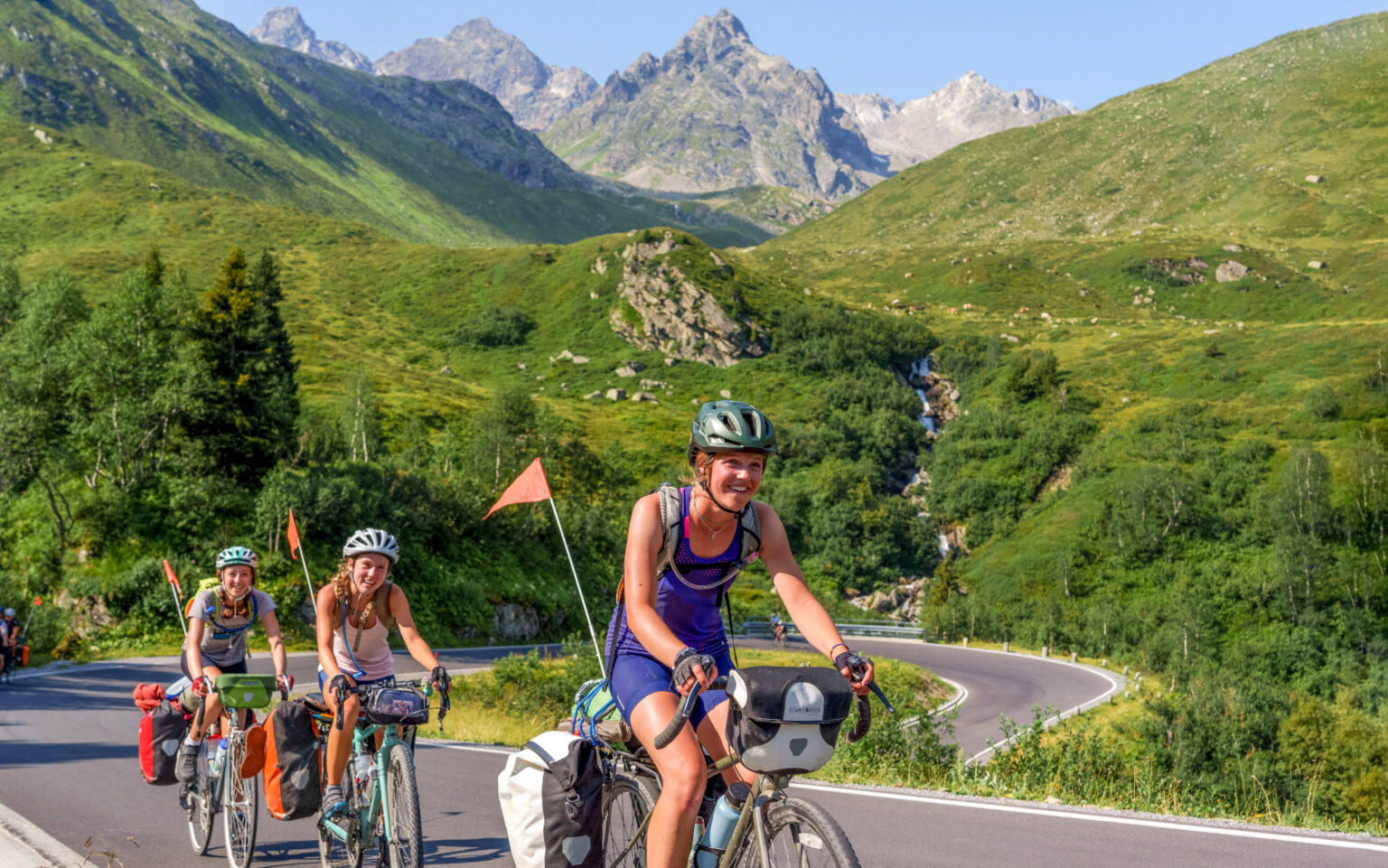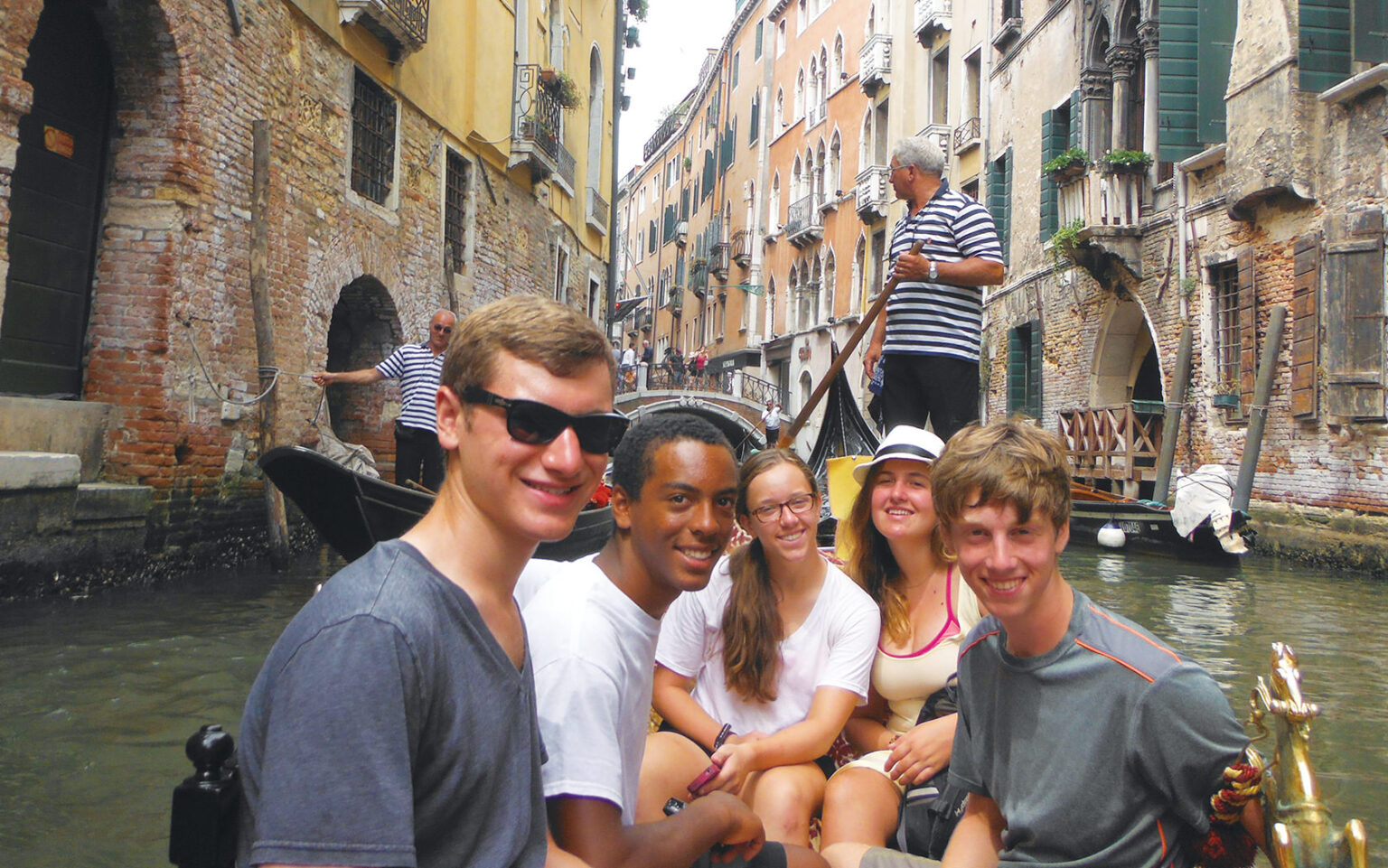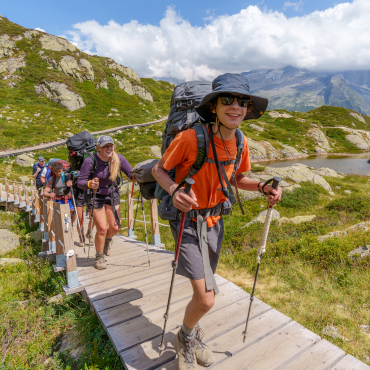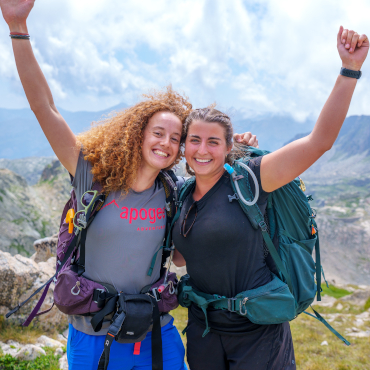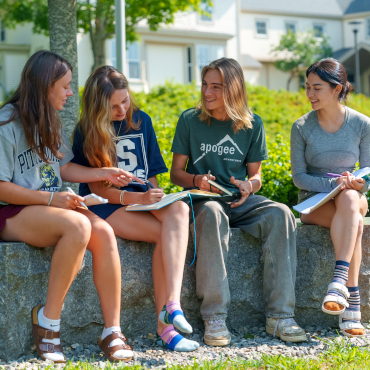Highlights
- Pedal along bike paths, canals and quiet country roads
- Explore the world-class cities of Bruges and Paris
- Ride through Germany’s Black Forest
- Challenge yourself by crossing the snow-capped Alps
- Celebrate in the enchanted city of Venice
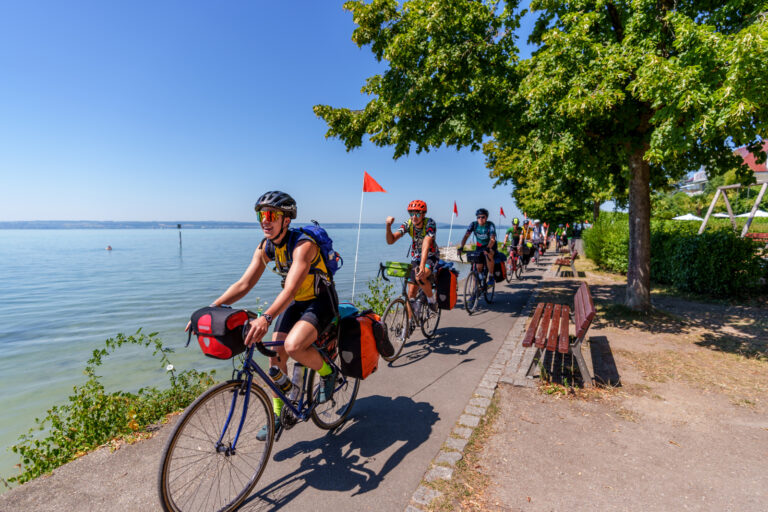
Trip Details
- Start: Amsterdam, Netherlands
- End: Venice, Italy
- Age Range: 15 - 18
- Cost: $7,899
Dates
Jun 30 - Jul 28 (Waitlist)
Jun 30 - Jul 29 (Available)
Trip Itinerary
Seven countries, four languages, two seas, and one outstanding European adventure. Europe Coast to Coast takes you through the heart of the continent on a journey rich in culture, history, and natural beauty. From the coast of the North Sea near Amsterdam, Holland to the Adriatic Sea and Italy’s most majestic and mysterious city, Venice, bike touring Europe Coast to Coast is an explorer’s dream. You’ll pedal past rural Belgian & French villages seemingly untouched by time, sample croissants in Paris, ride through Germany’s Black Forest, and challenge yourself up and over snow-capped mountain passes in Austria. This stunning biking adventure for high schoolers is a chance to get to know yourself, your trip mates, and Europe like never before.
Holland, Belgium & Paris
Our group will gather in Amsterdam and spend a first night in the ancient Dutch city of Haarlem before picking up the well-traveled Nordzeeroute bike route. This protected, coastal path winds its way along the coast of the North Sea for nearly 300 miles, past windmills and over dykes. We’ll cycle our way through charming Dutch and Belgian towns and cross the border into France. Once in France, we’ll bike along quiet country roads through small villages, enjoying the many delights of rural French life along our way. We’ll continue south to Epernay on the outskirts of Paris and take a train in to spend a day exploring the City of Light.
Rural France, Germany’s Black Forest & the Bodensee
From Paris, we’ll continue our European tour east through the vineyard covered hills of the Champagne region, into the verdant valleys of Alsace-Lorraine, and then on to Strasbourg, right on France’s border with Germany. We’ll cross the Rhine River and follow Germany’s outstanding network of bike paths through the charming Black Forest to the shores of Lake Constance, also known in Germany as the Bodensee. We’ll look across this famous lake to the snow-covered peaks of the Alps – the next leg of our journey together.
The Alps, Northern Italy & Venice
Leaving the Bodensee, we’ll start our climb into and through the Austrian Alps. Shortly after skirting the Swiss border, we’ll cross into Bella Italia and begin our (mostly) downhill descent towards the warm waters of the Adriatic Sea. Upon arrival, we’ll put our bikes away and spend our final day together celebrating our cycling prowess by exploring Venice, one of the world’s most beautiful and mysterious cities. Europe Coast to Coast. An international bike touring adventure offering the very best of Europe and memories to last a lifetime.
Reviews
Frequently Asked Questions
Please see our General FAQ page for many more frequently asked questions and answers!
How physically challenging is ECC?
Given a rating of Challenge Level 9 (out of a maximum of 10), we consider ECC to be an advanced cycle-touring trip. We do believe that any moderately fit, motivated student, who trains ahead of time, can successfully rise to the challenge of this trip. ECC will average 50-60 miles per riding day, but has several challenge days that will include rides of approximately 80 miles. Please note that all of Apogee’s Challenge Levels are not scientific and are subjectively calculated by the Apogee staff.
Aside from the trip cost, what are the additional expenses for this trip?
Apogee’s tuition costs are meant to be all-inclusive and include all meals, accommodation, and activity fees. The most significant additional expenses on our Europe Coast to Coast trip will include travel to Amsterdam for the trip start, and from Venice at trip end; a sleeping bag and sleeping pad; a touring bike and panniers; and baggage fees associated with flying with your bike. Apogee has waterproof panniers available to rent for the trip for $125. We suggest that you review the packing list (downloadable on this webpage) to determine what personal gear you already own and what you might need to acquire for this program. Please also check out our Gear Recommendations blog post for links to our personal recommendations.
What is the maximum number of students I can expect on my child’s Apogee trip?
There are never more than fifteen students on an individual session of this trip. Additionally, we limit enrollment by gender to two-thirds/one-third. Groups are always led by two qualified leaders.
Does this trip require a special type of bike?
Yes – ECC requires students to bring their own touring, adventure or gravel bicycle equipped with a rear rack mounted to four points on the bicycle frame. For a number of reasons, including familiarity and comfort while riding, we want students participating in this more challenging trip to train ahead of time on the bike they’ll be using. Please call our office with any questions regarding the suitability of your child’s bike for this trip.
How will I communicate with my child while they are on this trip?
We are a technology-free program, meaning that your child won’t have access to their phones or other electronic devices over the course of their trip. That said, students will get a chance to call home on their trip leaders’ phones two times over the course of the trip (usually around day 11 and day 22). Students on international trips will also call home at some point on arrival day, depending on schedules and arrival times. We have two mail stops on Europe Coast to Coast; parents, relatives, and friends are welcome to use this to send letters or postcards to a student. Note that we do not allow packages to be sent – letters and postcards only. If you have an urgent message to get to your child, please call our office and we’ll work to get you connected with your child.
Should I send my child with a European phone plan?
We encourage families to send their child with a phone for pre- and post-trip communication. However, because Apogee does not permit the use of cell phones by students while on trip, we do not recommend signing up for a European phone plan. If you’d like your child to be able to use their phone in Venice on departure day, we recommend you be in touch with your phone provider about any international calling programs they have. We recommend “Travelpass” (Verizon) or “International Day Pass” (AT&T), which charge you a $10 fee per day of use in other countries. To make their check-in calls home to you while on trip, your child will use their leader’s phone to call you.
This trip starts outside of the United States. What do I need to know before traveling internationally?
In addition to needing a valid passport, we encourage you to coordinate travel with other attendees. To that end, we’re happy to put you in touch with other enrolled families from your region. Please note that Apogee staff members do not travel with students; our trip leaders will already be in Amsterdam on arrival day and will stay in Venice after the trip ends. Apogee staff and trip leaders will have a detailed flight itinerary for each student and will be at the airport to greet them on arrival; our staff will also accompany students to the airport to assist with departures. We will provide enrolled families with a Travel Information document covering details specific to traveling to and from Europe, including airport information and arrival and departure time windows. We know that international travel can be daunting – rest assured that regardless of flight cancellations or delays, we will always have someone on hand to assist with our students’ arrivals and departures.
Is this trip vehicle-supported?
Yes. While all of our bike trips are self-supported – meaning that students and their leaders will carry their clothing, cooking gear, etc. on their bikes – Apogee maintains a dedicated support staff member and vehicle on our Europe Coast to Coast trip to provide assistance in the event of medical or mechanical exigency.
Where will my child be sleeping at night?
The group will be camping at established campgrounds for most nights on the trip, but will spend the final two nights of the trip indoors in a hostel in Venice. All campgrounds that the group will be staying at have running water, bathroom facilities, and showers. Leaders will separate students by gender into tent groups, and will rotate those groups several times over the course of our trip. Students will share a tent with one or two other students.
How do we transport my child’s bike and gear to and from Europe?
Bikes: We ask that you have your child’s bike boxed into a cardboard bike box a few days before the trip start. They will check their bike with them on the airplane as a piece of luggage. While the students are in Venice, our support staff will box all student bikes into cardboard boxes for their flight home, and will meet them at the airport with the boxed bikes. Students will check the bikes for their return flights. If it is possible with your airline, we highly recommend you pre-pay for the checked bicycle fee.
Gear: If you are renting panniers, we ask that you pack your child’s gear into a medium-sized cardboard box and check the box (no duffel bags or suitcases!). If you are bringing your own panniers, we ask that you pack your child’s gear into their panniers and check the panniers. This is covered in much more detail on the packing list distributed to enrolled families.
We’re planning a family vacation in Europe to coincide with the start/end date of the trip, but we don’t know what to do with our child’s bicycle while we’re traveling. Do you have any solutions?
We understand the desire to incorporate some European family travel before or after your child’s trip. However, the reality of dealing with your child’s bicycle during this travel can be both logistically challenging and expensive. The best option is to fly into Amsterdam (if traveling before the trip) or out of Venice (if traveling at the end of the trip) for your family travels, as we are able to offer a couple of suggestions for bike storage in the Amsterdam or Venice areas. Note that while Apogee can offer suggestions of storage locations, Apogee does not coordinate or pay for bicycle storage. We discourage shipping your child’s bicycle to/from Europe as it is expensive and can be logistically challenging. With that said, if you do decide to ship your child’s bike, you must take care of all of the shipping logistics (aside from boxing the bicycle at trip end, which will be done by our support staff). If you are thinking about shipping your child’s bicycle to/from Europe, please contact our office before making arrangements.
